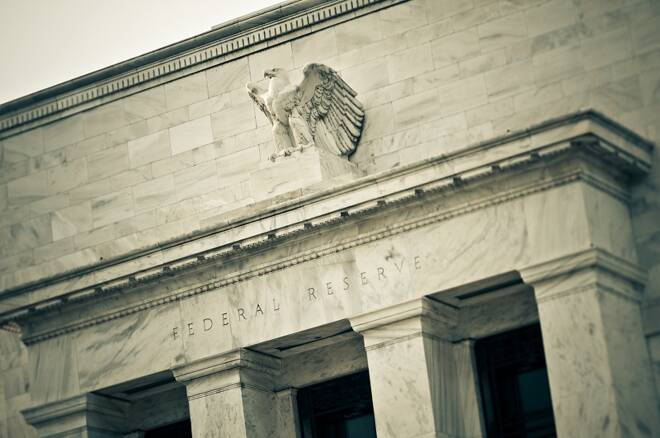Advertisement
Advertisement
Fed Facing Task of Controlling Inflation Without Fueling Stock Market Volatility
By:
With the economy strong and employment at full capacity, the Fed is not likely to be too worried about temporarily stalling economic growth, but I think it is worried about the impact of its decisions on stock market performance.
It’s been a quiet day in the markets on Tuesday with most major players on the sidelines ahead of Wednesday’s interest rate decision, monetary policy statement and press conference. The Fed is widely expected to raise rates by 25 basis points. This news has been priced into the market for weeks. The main focus will be on the Fed’s future projections.
Since the last Fed statement in July, inflationary signs have emerged. The Fed now faces the task of trying to regain control with monetary restraint and at the same time keep the markets and the economy from suffering a setback. What investors want to see in tomorrow’s monetary policy statement is whether the central bank will remain “accommodative” or will it turn it up a notch and fight inflation more aggressively.
The Fed will either leave the word “accommodative” in its monetary policy statement or it will take it out. Taking it out will signal to traders that the Fed feels we are getting closer to neutrality. This means it feels the economy is strong enough to warrant less stimulus, but inflation is tame enough to require less-aggressive rate hikes.
Problems can arise in the near future if the Fed policymakers choose the wrong path. If they remain accommodative and continue to raise rates gradually then they risk runaway inflation that will erode consumer buying power. Furthermore, if inflation gets out of control then the Fed will be forced to shock the system with more aggressive rate hikes. This could prove to be too much for the stock market to handle as well as the economy.
No one on the FOMC wants to be responsible for a stock market crash or a recession, but it is possible for the Fed to raise interest rates faster than previously and slow money and liquidity growth more dramatically. This could conceivably reverse the stock market rally that is already operating longer than any previous bull market.
Suggested Articles
- Global Stocks Mixed as US-China Trade War Intensifies, EM Central Banks Seem to Have Repelled the Attack
- U.S. Stocks – Uncertainty, Too Many Outside Forces Pressuring Shares
- The USD is on the Move ahead of Trump Addressing the General Assembly
With the economy strong and employment at full capacity, the Fed is not likely to be too worried about temporarily stalling economic growth, but I think it is worried about the impact of its decisions on stock market performance.
Furthermore, President Trump is also keying his success to stock market performance. Almost every time he is exposed in the media, he reverts back to stock market performance as a sign that he is doing a great job. A couple of times in the summer he criticized the Fed for raising rates and causing stock market volatility and setbacks.
Fed Chairman Powell has made it clear that the President has no influence on Fed policy. Therefore, Powell will not hesitate to raise rates more aggressively if he has to combat inflation even though he risks triggering a severe stock market correction. Besides, his mandate is to keep inflation at 2.0% and unemployment at 5.0%. There is no mention in his mandate about the level of the Dow, for example.
Powell also knows that historically, it’s hard to gain control of inflation once it starts to get out of control. It can wreck an economy.
But everyone knows especially after the sell-off in 2008-2009 that the economy is tied to the stock market. If there is a major setback in the stock market then consumers will likely stop spending, stop buying houses and stop borrowing from banks. At the same time, companies will become more concerned about profits and the layoffs will start. Analysts will lower their earnings forecasts and the whole bull market could start to unravel just like that.
So on Wednesday, don’t just read the headline because everyone knows the Fed is going to raise rates. Read the monetary policy statement because the Fed’s words will have a bigger impact on the direction of the markets more than anything else.
About the Author
James Hyerczykauthor
James Hyerczyk is a U.S. based seasoned technical analyst and educator with over 40 years of experience in market analysis and trading, specializing in chart patterns and price movement. He is the author of two books on technical analysis and has a background in both futures and stock markets.
Advertisement
